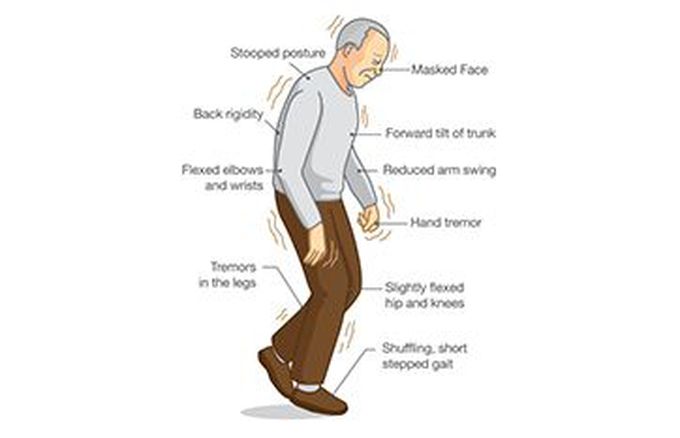


Causes of movement disorders
A wide variety of factors can cause movement disorders, including: Genetics. Some types of movement disorders can be caused by an altered gene. The altered gene is passed down from a parent to a child. This is called an inherited condition. Huntington's disease and Wilson's disease are two movement disorders that can be inherited. Medicines. Medicines such as anti-seizure and anti-psychotic medicines can lead to movement disorders. Illegal drugs or large amounts of alcohol. Illegal drugs such as cocaine can cause movement disorders such as chorea. Drinking large amounts of alcohol can cause chorea or ataxia. Not getting enough of certain vitamins. Having low levels of certain vitamins in the body, known as a vitamin deficiency, can cause movement disorders. A deficiency in vitamin B-1, vitamin B-12 or vitamin E can lead to ataxia. Medical conditions. Thyroid conditions, multiple sclerosis, stroke, viral encephalitis and several others can cause movement disorders. Brain tumors also can lead to movement disorders. Head injury. Head trauma from an injury can lead to movement disorders. For most people with a movement disorders, there is no known cause. When healthcare professionals haven't found the exact cause, it's called idiopathic.
Four years ago, my life changed when I was diagnosed with Huntington’s disease. As time went on, the symptoms progressed faster than I expected. Despite trying multiple prescription medications, my coordination worsened, involuntary movements increased, and everyday tasks became more challenging. Emotionally and physically, it felt like I was losing control of my life. Last year, after a lot of research and hesitation, I decided to explore an alternative route and enrolled in a herbal treatment program with NaturePath Herbal Clinic. I didn’t expect much at first, but after several months, I began to experience meaningful improvements. My movements became more controlled, the constant jerking reduced significantly, and my balance improved. I also noticed a boost in my stamina and mental clarity, which helped restore my confidence and independence. Today, I feel stronger and more hopeful than I have in years. While I understand that every condition and person is different, this experience has truly made a difference in my quality of life. If you or someone close to you is living with Huntington’s disease and searching for additional support options, it may be worth learning more about their natural approach. Website: www.naturepathherbalclinic.com Email: info@naturepathherbalclinic.com


